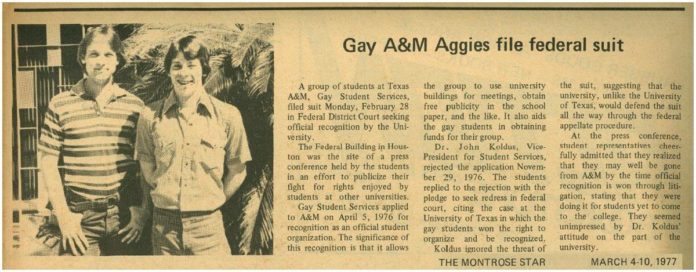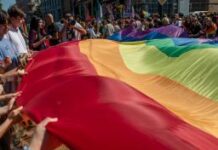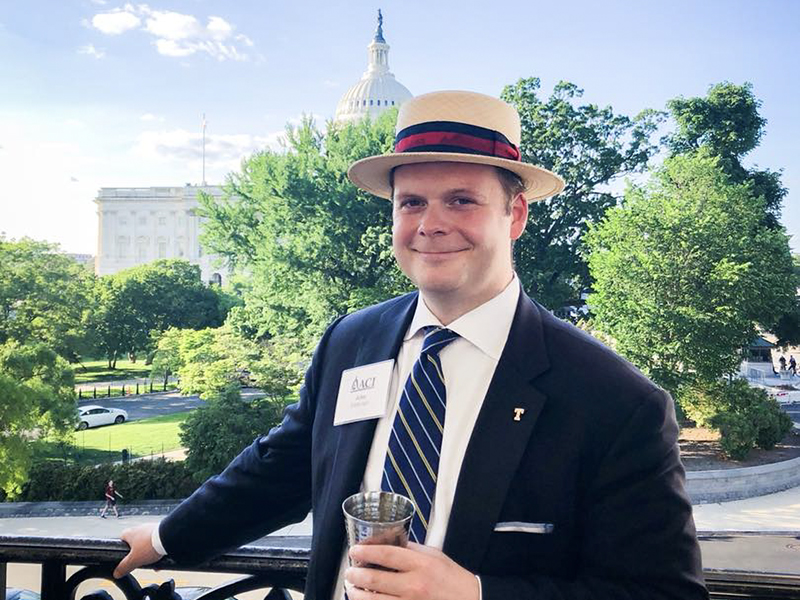
Texas A&M’s campus is currently home to the LGBTQ+ Cultural Center, along with various LGBTQ+ student organizations and has become a safer place for students of any sexuality to celebrate themselves. This environment has drastically changed over the years, and was forged in large part by the Gay Student Services starting in the 1970s.
Kevin Bailey, former member, historian and vice president of Gay Student Services, or GSS, found the group via their political presence at on-campus events. Bailey said their activism inspired him to look further into the mission of GSS.
“Jerry Falwell came to speak on campus, and so I went to that just to see what he was going to say,” Bailey said. “There were some students from GSS who asked some challenging questions, which he didn’t really answer, but I was aware of them from that.”
As Bailey began his sophomore year, he started the search for a roommate. Bailey said one particular roommate in his search stood out, which led him back to GSS.
“They had boxes of 5×8 index cards and people … So as I was going through that, I found one card that said ‘I’m gay and know other people who are also gay who need roommates, so call this number,’” Bailey said. “So I wrote down the number and called it… The guy that called me back was actually the president [of GSS] at the time. His name was Eric.”
Having frequently connected with GSS, Bailey began to attend meetings and learned more about the organization. Initially, the reaction to the organization was hostile, Bailey said.
“[GSS] originally met off campus, but they wanted to be able to put their signs up on campus to advertise the meeting,” Bailey said. “That’s basically where the court case came in, because when they started putting [the flyers] up, there [were three] Corps guys who they got into an argument with. One of them pulled a knife out and made them go back around and take the signs down.”
The group continued to face controversy, culminating in the organization requesting recognition from the university, with the hopes of protecting its members. Administrators delayed in responding, but eventually denied the organization’s request. Bailey said the process of Gay Student Services v. Texas A&M was a long one, involving many appeals.
“Basically, the original judge had thrown it out, and the circuit court reversed his throwing out, and then the Supreme Court refused to hear it. So that sent it back to the original judge who then ruled against GSS on the grounds that GSS was a social organization and A&M at the time, didn’t have fraternities,” Bailey said. “But the name of our group was Gay Student Services, and we had really tried to make sure that we were providing services. That’s why we had the Gayline and the roommate service.”
As the court case was coming to a close, the GSS was busy planning a Gay Week event on campus, with political forums, debates, booths, movies and a night out at a local gay bar. While this was in the works, it was announced that the Supreme Court refused to hear A&M’s appeal of the case. Bailey said this time was hectic, but extremely celebratory, and shared an entry from his journal about interviews the GSS president Marco Roberts underwent.
“Reporters were everywhere, Marco was interviewed by Channel 3 by Mark Metters again. Channel 13 from Houston showed up also. After Marco went to work, the Gayline was transferred to my phone,” Bailey wrote. “I was interviewed by the Austin American Statesman and a local radio station. When Channel 11, CBS Houston called, I gave them Marco’s number at work. Marco took a 15-minute break so they could interview him in the Safeway parking lot.”
While this interview was monumental, Bailey said as time has gone on, he looks back on the progress in a new light.
“When we had the 25th anniversary of the GSS court case … there was a lot of difference in the way people remembered the time,” Bailey said. “I didn’t have any ideas about same-sex marriage or out politicians. There were some politicians at the time, but, you know, it seemed like we had already arrived. When I look back on it, I realized how far there was still to go.”
Though Bailey and his peers were part of a key event in LGBTQ+ history of A&M, Bailey said living through this didn’t feel as significant as it actually was.
“It was kind of normal for me,” Bailey said. “I didn’t feel at the time that we were living through a special time. I just thought it was, that’s just where we were.”








